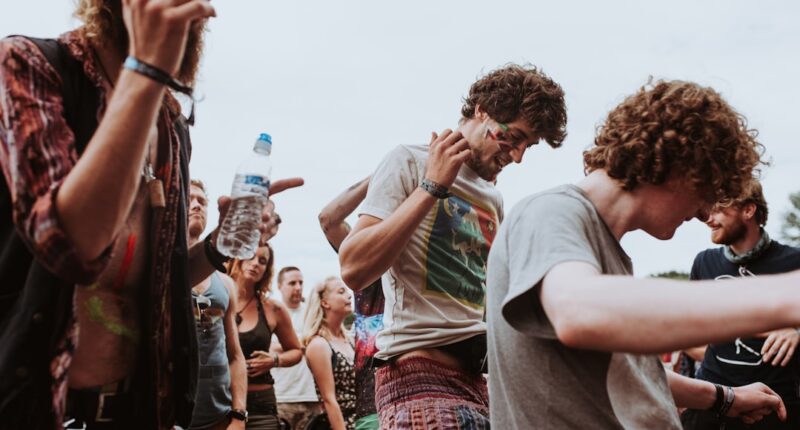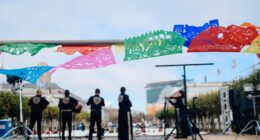In recent years, influencer marketing has emerged as a powerful force within the music industry, reshaping how artists connect with their audiences and promote their work. Traditionally, musicians relied on radio play, television appearances, and print media to reach fans. However, the advent of social media and digital platforms has given rise to a new breed of influencers—individuals who have cultivated substantial followings and wield significant sway over their audiences.
These influencers often share a deep passion for music, making them ideal partners for artists looking to amplify their reach. By collaborating with influencers, musicians can tap into niche markets and engage with potential fans in a more authentic and relatable manner. This shift has not only democratized music promotion but has also allowed for a more personalized approach to marketing, where the artist’s message can be conveyed through the lens of someone who resonates with their target demographic.
Moreover, the rise of influencer marketing has led to innovative promotional strategies that blend creativity with commerce. Artists are no longer confined to traditional advertising methods; instead, they can leverage the unique storytelling capabilities of influencers to create compelling narratives around their music. For instance, an influencer might share a behind-the-scenes look at an artist’s recording process or curate a playlist featuring their favorite tracks from the musician.
This type of content not only generates buzz but also fosters a sense of community among fans. As influencers continue to shape cultural trends and consumer behavior, their role in the music industry is likely to expand further, paving the way for new collaborations and marketing strategies that prioritize authenticity and engagement.
Key Takeaways
- Influencer marketing has become a powerful tool for musicians to reach new audiences and connect with fans on a personal level.
- Streaming platforms have revolutionized music promotion, allowing artists to reach global audiences and track real-time performance data.
- Social media plays a crucial role in music marketing, providing a platform for artists to engage with fans, share content, and build their brand.
- Experiential marketing has evolved in the music industry, with brands creating immersive experiences to connect with fans and promote their products.
- Data and analytics are shaping music marketing strategies, providing insights into audience behavior, preferences, and trends.
The Impact of Streaming Platforms on Music Promotion
Challenges in the Crowded Marketplace
However, while streaming platforms have opened doors for many musicians, they have also introduced new challenges in terms of visibility and competition. With millions of tracks available, standing out in a crowded marketplace requires innovative marketing strategies that leverage the unique features of these platforms. Streaming services have also transformed how music is marketed through curated playlists and algorithm-driven recommendations.
The Power of Playlists
Playlists have become a vital tool for artists seeking exposure, as being featured on popular playlists can significantly boost an artist’s streams and visibility. This shift has led to a new focus on playlist placement as a key component of music promotion strategies. Artists and their teams are now investing time and resources into understanding how algorithms work and how to engage with curators effectively.
Data-Driven Marketing Decisions
Additionally, streaming platforms often provide valuable data analytics that can inform marketing decisions, allowing artists to tailor their promotional efforts based on listener demographics and behavior. As streaming continues to dominate the music landscape, its impact on promotion will only grow, necessitating that artists adapt to this ever-evolving environment.
The Role of Social Media in Music Marketing

Social media has become an indispensable tool for music marketing, providing artists with direct access to their fanbase and enabling them to cultivate a personal connection with listeners. Platforms like Instagram, TikTok, Twitter, and Facebook allow musicians to share updates about their work, engage with fans in real-time, and showcase their personalities beyond their music. This level of interaction fosters loyalty among fans, who feel more invested in an artist’s journey when they can witness behind-the-scenes moments or participate in conversations about new releases.
Furthermore, social media serves as a platform for viral trends that can propel songs into the mainstream consciousness almost overnight, as seen with TikTok challenges that have catapulted lesser-known tracks into global hits. In addition to fostering engagement, social media also plays a crucial role in shaping an artist’s brand identity. Musicians can curate their online presence by sharing content that reflects their values, aesthetics, and musical influences.
This strategic branding is essential in a saturated market where differentiation is key to success. Artists often collaborate with other creators or participate in social media challenges to expand their reach and tap into new audiences. The immediacy of social media allows for real-time feedback from fans, enabling artists to gauge reactions to their work and adjust their marketing strategies accordingly.
As social media continues to evolve, its role in music marketing will remain pivotal, offering artists innovative ways to connect with fans and promote their music.
The Evolution of Experiential Marketing in the Music Industry
Experiential marketing has gained traction in the music industry as artists and brands seek to create memorable experiences that resonate with fans on a deeper level. Unlike traditional advertising methods that often rely on passive consumption, experiential marketing invites audiences to actively engage with the brand or artist in immersive environments. Concerts, festivals, pop-up events, and interactive installations are just a few examples of how musicians are leveraging experiential marketing to forge lasting connections with their audience.
These experiences not only enhance fan engagement but also create opportunities for artists to showcase their creativity beyond the confines of recorded music. The evolution of experiential marketing has been particularly evident during live events, where artists are increasingly incorporating unique elements into their performances. From elaborate stage designs to interactive audience participation, musicians are pushing the boundaries of what a concert can be.
Additionally, brands are recognizing the value of aligning themselves with these experiences by sponsoring events or collaborating with artists on exclusive merchandise or limited-edition releases. This synergy between artists and brands creates a win-win situation: musicians gain additional exposure and resources while brands tap into the emotional connection fans have with their favorite artists. As experiential marketing continues to evolve within the music industry, it will likely lead to even more innovative collaborations that prioritize authentic engagement and memorable experiences.
The Influence of Data and Analytics in Music Marketing Strategies
In an age where data drives decision-making across industries, the music sector is no exception. The integration of data analytics into music marketing strategies has transformed how artists understand their audiences and tailor their promotional efforts accordingly. Streaming platforms provide a wealth of information about listener demographics, geographic locations, and listening habits that can inform everything from tour planning to social media campaigns.
By analyzing this data, artists can identify trends and preferences within their fanbase, allowing them to create targeted marketing strategies that resonate more effectively with listeners. Moreover, data analytics enables musicians to measure the success of their marketing initiatives in real-time. By tracking metrics such as engagement rates on social media posts or streaming numbers following a promotional campaign, artists can assess what works and what doesn’t.
This iterative approach allows for continuous improvement in marketing strategies, ensuring that resources are allocated efficiently for maximum impact. As technology continues to advance, the role of data in music marketing will only become more pronounced, empowering artists to make informed decisions that enhance their visibility and connect them with fans on a deeper level.
Opportunities for Brands to Partner with Musicians and Music Events

The intersection of brands and musicians presents a wealth of opportunities for collaboration that can benefit both parties involved. As brands seek innovative ways to engage consumers in an increasingly competitive marketplace, partnering with musicians offers a unique avenue for authentic storytelling and emotional connection. Whether through sponsorships at music festivals or collaborations on exclusive merchandise lines, brands can leverage an artist’s influence to reach new audiences while enhancing their own brand image.
For instance, a beverage company might sponsor an artist’s tour or create limited-edition flavors inspired by the musician’s style or lyrics—an approach that not only promotes the product but also deepens the connection between fans and the artist. Furthermore, as consumers increasingly prioritize authenticity in brand interactions, partnerships with musicians can help brands align themselves with cultural movements and resonate more deeply with target demographics. Collaborations can take many forms—from co-branded content on social media platforms to experiential activations at live events—each offering unique opportunities for engagement.
By tapping into an artist’s existing fanbase, brands can expand their reach while providing value through exclusive experiences or products that enhance the overall enjoyment of music consumption. As the landscape of music marketing continues to evolve, these partnerships will play an essential role in shaping how brands connect with consumers in meaningful ways.
The Future of Music Marketing in New York City
As one of the world’s cultural epicenters, New York City is poised to remain at the forefront of music marketing innovation in the coming years. The city’s vibrant arts scene and diverse population create an ideal environment for experimentation and collaboration among artists, brands, and marketers alike. With advancements in technology continuing to reshape how music is produced and consumed, New York City will likely see an increase in immersive experiences that blend live performances with cutting-edge technology—think augmented reality concerts or interactive art installations that enhance the overall experience for attendees.
Moreover, as the demand for personalized content grows among consumers, artists based in New York City will have ample opportunities to leverage data analytics and social media insights to craft tailored marketing strategies that resonate with local audiences while reaching global markets. The city’s rich tapestry of cultures provides fertile ground for cross-genre collaborations that can lead to unique musical fusions and innovative promotional campaigns. As we look ahead, it is clear that New York City will continue to be a hub for creativity and innovation within the music industry—setting trends that will shape the future of music marketing both locally and globally.
FAQs
What are the current trends in NYC’s music marketing landscape?
The current trends in NYC’s music marketing landscape include the rise of digital marketing strategies, the use of social media influencers for promotion, and the integration of experiential marketing techniques.
How is technology impacting music marketing in NYC?
Technology is impacting music marketing in NYC by providing new platforms for promotion, such as streaming services and social media, as well as enabling targeted advertising and data-driven marketing strategies.
What opportunities are available for musicians in NYC’s music marketing landscape?
Opportunities for musicians in NYC’s music marketing landscape include collaborations with brands, partnerships with influencers, and the ability to reach a global audience through digital platforms.
What are the challenges facing musicians in NYC’s music marketing landscape?
Challenges facing musicians in NYC’s music marketing landscape include standing out in a crowded market, navigating the complexities of digital marketing, and finding the right balance between artistry and commercial appeal.









